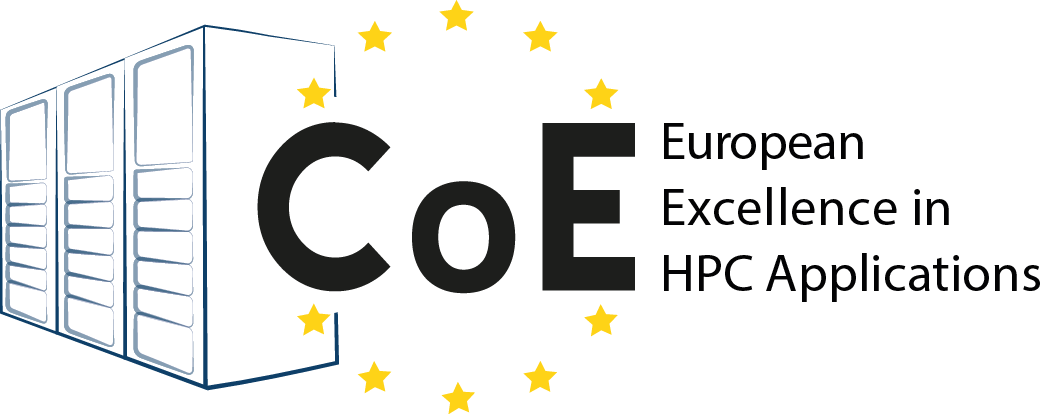HPC as a strategic tool to increase European competitiveness entails investment not only in infrastructure, applications and R&D, there is also a strong need to invest in skills development of the labour force underpinning the ecosystem. As EuroHPC realises the emergence of new HPC systems and national competence centres across Europe, there is a growing need to examine how HPC skills development activities will co-evolve. This workshop focuses on the HPC education and training landscape among the EU13 Member States, with individual talks on existing programmes, target communities and industries, and future perspectives. It will be of general interest to HPC education and training stakeholders in learning more about an important part of the European ecosystem which will translate into better planning of future skills development initiatives.
Programme
13:30 – 13:40 “Welcome, HPC Education and Training – Landscape and Perspectives of EU13 Member States” – Simon Wong
13:40 – 14:30 Panel: Perspectives from EU13 Member States – Moderator: Simon Wong
14:30 – 15:00 Coffee break
15:40 – 15:55 Panel: Perspectives from EU13 Member States – Moderator: Simon Wong
15:55 – 16:00 Wrap-up and farewell
Please register here: https://events.prace-ri.eu/event/1018/page/114-registration
Hosted by FocusCoE, this workshop within the EuroHPC Summit Week 2021 will include a first introductory part with a the HPC competence centers followed by a discussion panel titled “Applications Support in EuroHPC – Status and Future“.
Programme
| 13:30 – 13:40 | FocusCoE welcome and introduction | Guy Lonsdale (Scapos) |
| 13:40 – 14:30 | Preparing European Applications for the Exascale Era – Successes and Perspectives from the HPC Centres of Excellence | Edouard Audit, CEA & EoCoE |
| 14:30 – 15:00 | Coffee break | |
| 15:00 – 15:55 | Panel: Applications Support in EuroHPC – Status and Future
Subtitle: „Centres of Excellence in Context“ Panelists: Elisa Molinari, Univ. Modena & MAX, RIAG Sinead Ryan, Trinity College Dublin & INFRAG Edouard Audit, CEA & EoCoE Bastian Koller, HLRS & Excellerat, EuroCC/CASTIEL Joost VandeVondele, CSCS & MAX, RIAG, PRACE Daniel Opalka, EuroHPC Juan Pelegrin, European Commission |
Moderator: Erwin Laure, MPCDF & FocusCoE |
| 15:55 – 16:00 | Wrap-up and farewell | Guy Lonsdale (Scapos) |
Register to this event here: https://na.eventscloud.com/ereg/newreg.php?eventid=559438&
Organised jointly by the H2020 projects IS-ENES3 and ESiWACE2, the workshop will be virtual, from the 16th to 18th March 2021 (3.5h per day).
The aim of this workshop is to bring together climate scientists and experts from academia and industry to share knowledge and experience and to identify new opportunities in the areas of machine learning, artificial intelligence and big data techniques for Weather and Climate Modelling.
The workshop is organised around three sessions:
– 16 March (Day 1): Views from Domain Science
– 17 March (Day 2): ML/AI Software Technologies
-18 March (Day 3): High performance, Infrastructure and Big data Challenges
You can register here before March 12th, 2021 !
A wide range of networking activities has been going on in EoCoE-II, in order to enable the consortium to reach out to key stakeholders and facilitate EoCoE-II’s impacts and large-scale uptake. The need for a specific expertise in exploitation of the project’s results was recognized in EoCoE-I. It was therefore agreed in the consortium that a professional external support was needed to maximize the impact of this activity, implement a methodology select and promote a selection of Key Exploitable Results. To this end, the Italian company META Group, which specializes in maximizing the exploitation of results stemming from research projects, was hired.
This workshop will allow META to present their approach and how they have been working to improve EoCoE’s exploitation of results. The EoCoE researchers whose results have been selected will feature as speakers, to describe how they benefited from this process, and what lessons can be applied to all CoE-related dissemination and exploitation strategy.
More ifnormation: https://indico.math.cnrs.fr/event/6469/
